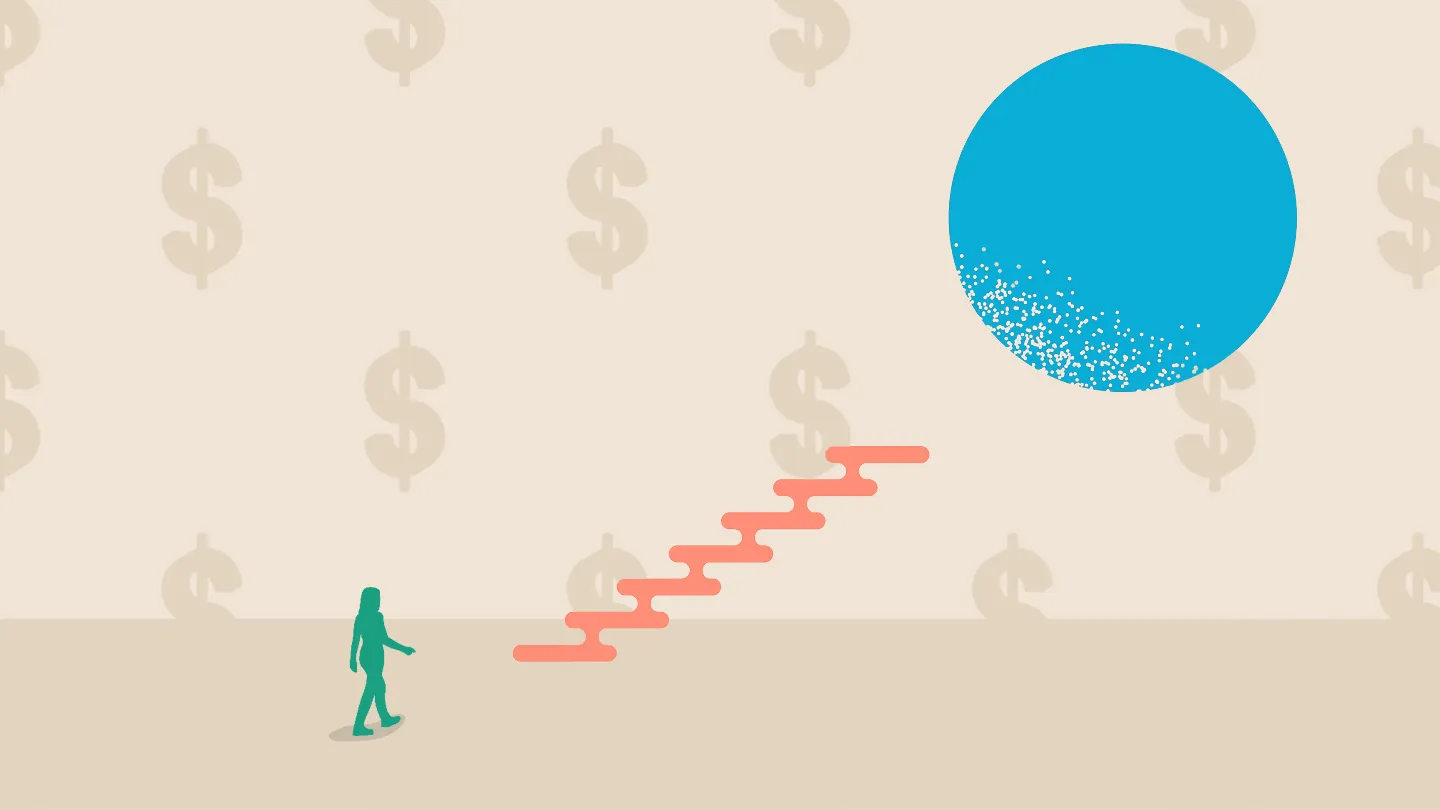As federal job cuts impact tens of thousands, they’re not the only ones facing financial insecurity. With retirement accounts fluctuating and recession worries growing, many are struggling to manage the stress tied to personal and national economic instability.
Although having savings offers some protection, research indicates that additional elements—often psychological—can be just as important, if not more, for maintaining physical and mental well-being during financial hardship.
According to Jeffrey Anvari-Clark, a social work professor at the University of North Dakota who studies financial instability, an individual’s perception of their financial situation plays a pivotal role in how they cope. A 2023 study he conducted found that emotional reactions to income drops were 20 times more impactful on mental health than the drop itself.
“Whether someone sees it as catastrophic or manageable can determine their stress levels,” says Anvari-Clark. The stories people tell themselves about money, he explains, significantly shape their experience of financial pressure—often more than the numbers themselves.
He notes that individuals who perceive financial setbacks as temporary tend to handle them with more resilience, while others may view the same events as crises, sparking emotional responses that can escalate into serious health concerns, including depression, substance use, and cardiovascular issues.
Anvari-Clark clarifies that the significance of money is not in question. Struggles to afford essentials like food or housing are legitimate emergencies. Still, he argues that mindset and coping mechanisms heavily influence the outcome of such challenges.
“Money is frequently an emotional issue disguised as a rational one,” says therapist Amanda Clayman, who specializes in helping clients with financial stress. She observes that many people reach out for support feeling immobilized—not solely by job loss, but by a general sense of economic instability.
To move forward after a financial blow, Clayman encourages channeling energy into intentional actions.
Recovering Identity After Job Loss
Losing a job can involve mourning not only income but also a sense of self, says Anvari-Clark. This emotional process may hinder recovery if left unaddressed.
He explains that those who struggle with the identity loss tied to their jobs often have difficulty progressing beyond the setback. “For some, that emotional loss amplified the hardship,” he adds.
Michelle, a federal worker recently laid off from her role preventing child sex trafficking at the CDC, describes her grief. She requested that only her middle name be used to protect severance benefits. Concerned that her team’s work won’t continue, she says, “I’m heartbroken for what this means for the country and for people’s safety.”
Still, she is exploring new avenues in child advocacy or international work. “I’m considering paths that still align with public service,” she says.
Grief extends beyond job loss. Clayman shares a personal story: her daughter is about to start college, and years of savings were significantly impacted by market volatility. She says she’s mourning the financial position they once anticipated.
Clayman believes acknowledging and processing that loss is key to adapting. “Letting go of what we imagined our financial life would be is painful—but necessary for progress,” she says.
Explore New Avenues for Purpose
One approach to ease the effects of unemployment is engaging in side jobs or volunteering, says Anvari-Clark. These activities help individuals feel productive, develop new skills, and start envisioning alternate paths.
Michelle has taken up teaching—one class at a university, and another involving test preparation. “It’s helped to feel like I’m doing something to earn money,” she says. “I’ve always been someone who keeps working through adversity.”
Despite the challenges, Anvari-Clark says staying active in the community accelerates the return to employment more than withdrawing in isolation. Reaching out to professional networks, he adds, is a practical way to discover opportunities that may not be advertised yet.
“Networking helps you learn about openings before they’re official,” he explains. At the same time, updating resumes and refining interview skills are essential parts of the process.
Building Tolerance for the Unknown
“Our early ancestors didn’t grapple with existential dread,” Clayman notes. Today’s financial stress often stems from feeling unable to fix what’s beyond personal control—like job markets or investment returns. This helplessness can lead to unhealthy patterns like overindulging in food, alcohol, or digital media.
According to Clayman, people seek emotional relief in these moments, often unconsciously. Reframing instinctive reactions into constructive habits can be key to resilience, she says.
Start by narrowing the time frame of concern. Rather than worrying about events years away—like retirement—Clayman advises focusing on what can be done in the next month or three.
Then, enter a phase of inquiry. “This step is crucial because it forces emotional regulation,” she explains. For someone managing sudden income loss, it might involve listing short-term resources and setting small financial goals.
When seeking new employment, this means researching industries of interest and applying to a defined number of roles within a set period.
These practices help build agility and confidence when facing uncertainty.
Daily Habits That Strengthen Well-Being
Anvari-Clark emphasizes that maintaining health during financial stress is critical. Sleep, physical activity, and staying socially connected can enhance mood and improve resilience.
Clayman agrees. “Even if we can’t control the economy, we can control our daily habits,” she says. That includes keeping up with relationships and treating the body with care—eating well and avoiding self-neglect.
Instead of internalizing stress, people can learn to see themselves as strong and capable in the face of adversity. “Financial crises often open the door to new ways of thinking about money,” she says.
Though not always welcomed, this perspective has helped many of Clayman’s clients reclaim a sense of agency. “I’ve had clients angry with me for suggesting they could grow from this,” she admits. But over time, she’s also seen them embrace a more empowered narrative.
“They begin to see themselves not as victims of circumstance, but as individuals rising to meet a difficult challenge,” she says. That shift, she believes, is ultimately liberating.







